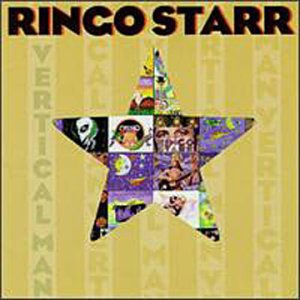
- Format: MP3

Early in his career, Ringo Starr realized that he couldn't quite carry an entire album by himself, so he established the practice of the "all-star" (or "All-Starr," as he later dubbed it) album, drafting in his musician buddies to help him make an album. The first time he did this was also the best — 1973's Ringo remains one of the best Beatles solo albums, possibly the only one that is simply, unabashedly fun. The approach also enlivened his 1992 comeback album Time Takes Time, but it fails to deliver on that record's follow-up, Vertical Man. Ringo remains loyal to such longtime friends as Joe Walsh and Tom Petty, as well as Paul and George, but he also brings in such young guns as Alanis Morissette and Scott Weiland, hoping that some of their hipness will transfer to him. Of course, that doesn't happen, but you wouldn't want it to anyway — Ringo is at his best when he's Ringo, warbling amiable ditties with his charming, slightly off-key voice. Vertical Man has that in spades. The overall quality of the songs isn't as strong as Time Takes Time, but there are some neat moments, from a cover of Dobie Gray's timeless "Drift Away" to ingratiating new numbers like "One" and "I'll Be Fine Anywhere." It's a slight album — most of Ringo's albums are — but it's an entertaining one, and that's only true of a handful of his records.